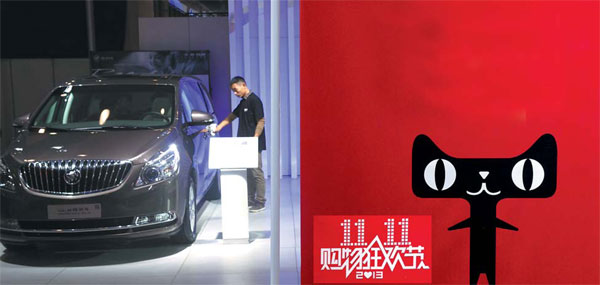Guideline addresses monopolies
Draft gives teeth to existing law while specifically targeting vehicle sector
China is soliciting public opinion on an auto sector anti-monopoly draft, a sign that car sellers may face fairer competition and which could give customers more freedom of choice in the world's largest auto market.
The draft, which the National Development and Reform Commission released on March 23 to seek public suggestions until April 12, covers monopolistic practices in sectors ranging from car sales, after-sale services and spare part supplies to online car sales and the maintenance of parallel imported cars.
The first of its kind in all industries, the draft came after frequent investigations into monopolistic practices that involved more than a dozen auto brands and their dealers since 2014, with fines adding up to more than 2 billion yuan ($307 million).
The country's anti-monopoly law took effect in 2008 but there has been no legislation to fight monopolies in specific industries.
Among other things, the draft, which experts expect will see little change before the final version, stipulates that car dealers be allowed to sell their products or services to customers in any region of the country as restrictive demands "weaken competition among dealers of the same brand, resulting in segmented markets and fuel price prejudice".
Yan Jinghui, a Beijing-based auto analyst, said automakers currently ban their dealers in one region from selling cars in other regions, Beijing Business Today reported.
Automakers severely punish dealers caught doing so by canceling their rights to refunds or ceasing providing them with cars, but such acts will become history if the law passes as drafted, Yan said.
The draft also makes online car sales at lower prices immune to monopolistic charges, saying that dealers who receive payment and deliver cars through automakers' online transactions with unspecified customers on special occasions are different from dealers in the traditional sense.
Some lawyers, including Wei Shibing, an antitrust lawyer at Beijing's Dacheng Law Office, voiced concern about that clause, saying it could have loopholes that are hard to detect.
"Automakers might sell cars online at prices negotiated with dealers. That is an act of vertical monopoly but it is difficult to monitor," Wei said in an interview with National Business Daily.
The purchasing of cars online has become widely popular in the country. China's e-commerce website Yiche.com said it sold 77,992 cars online on Nov 11, better known as Singles Day in China, with their combined sales revenue amounting to 12.56 billion yuan. On the same day, autohome.com sold 54,085 cars, reaping 8.79 billion yuan.
The draft also includes favorable policies for new-energy vehicles, allowing dealers to sell cars at automakers' designated prices during a promotional period of up to nine months.
Such acts would be deemed monopolistic under other circumstances, according to the draft.
Any organizations, including government departments, which ban the entry of used cars into local markets will be charged with monopolistic practices, according to the draft.
The move will facilitate transactions of used cars nationwide, said the China Automobile Dealers Association, which has called for lifting such bans.
The association said about 300 cities have such restrictive measures.
The draft also touches upon parallel imported cars, stipulating that carmakers should not forbid their dealers from servicing such cars.
In addition, automakers are required in the draft to ensure the public has access to information about their models' maintenance.
The transport ministry published a similar regulation in September that demands carmakers make public all information about repairing and maintaining the models they sell.
Before the regulation took effect in January 2016, only authorized dealers had access to such information, which had made it easy for them to charge exorbitant prices.
lifusheng@chinadaily.com.cn
|
An automaker partners with e-commerce website Tmall to promote its cars at an auto show in Zhengzhou, Henan province. Online car sales, which are addressed in the auto sector's antitrust draft, have become popular in China. Probided To China Daily |
(China Daily 03/28/2016 page18)















